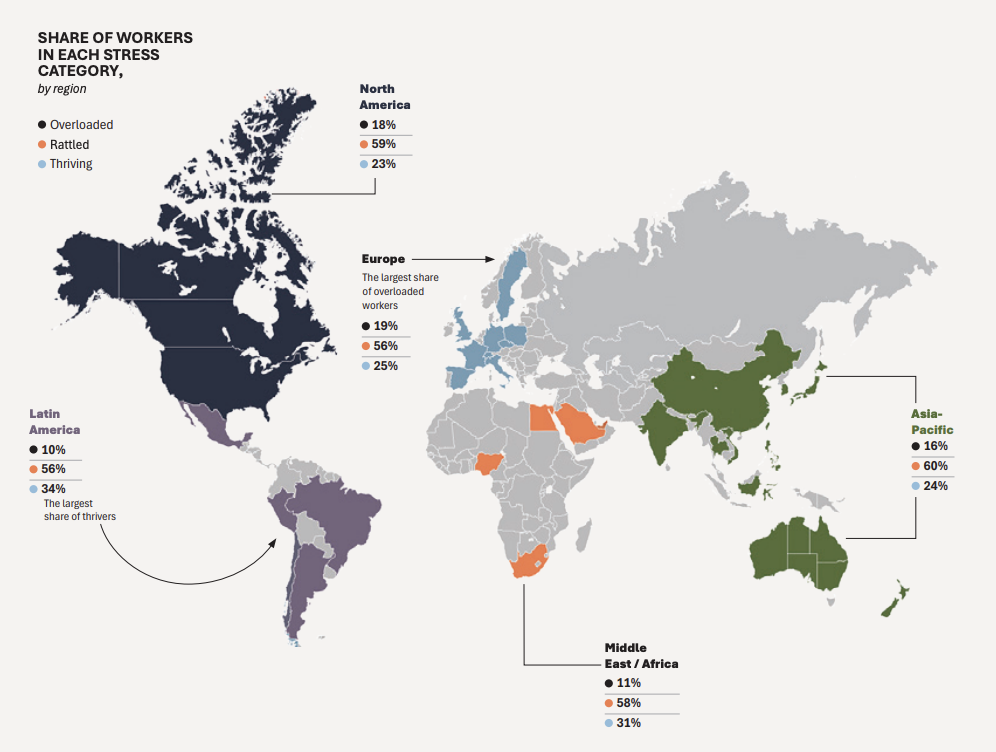
Singapore records biggest growth in employees who experience pressure but remain resilient

More than a quarter of employees in Singapore are thriving in the workplace, but insecurities remain over the usage of flexible work arrangements, according to a new report.
ADP Research's "People at Work 2025" report revealed that 26% of Singaporean employees are thriving, an 11-percentage-point increase from last year, and the highest growth globally.
Thriving workers are employees who are more likely to experience work pressure as positive stress, according to the ADP report.
"They're more engaged, more resilient, more productive, and less likely to quit their jobs," it added. "They show higher levels of motivation and commitment."
The surge in thriving workers in Singapore deviates from the global average, which dipped by two percentage points to 27% in 2024.
It is also higher than the APAC average, which is at 24%. In the region, the highest share of thriving workers was reported in China (40%), the Philippines (30%), and Indonesia (27%).
Yvonne Teo, Vice President of HR, APAC at ADP, said stress is a constant in a high-performing economy like Singapore, but noted that not all stress is harmful.
"The data shows that more workers are managing stress in ways that drive performance and growth, and employers should ensure that this is supported with sustainable workplace practices," Teo said in a statement.
Despite the surge in the share of thriving workers, 59% of employees in Singapore are "rattled," while another 15% are "overloaded" in the workplace.
According to ADP, rattled employees experience stress and might not particularly like it, but they are able to cope. Overloaded staff, on the other hand, experience job pressure much more negatively.

Nela Richardson, Chief Economist at ADP, pointed out that the absence of bad on-the-job stress does not guarantee that employees will thrive at work.
"Other factors, such as a lack of trusting relationships with one's coworkers or leaders, or feelings of limited freedom and flexibility within the workplace, might also be involved," Richardson said in a statement.
According to the report, workers who feel monitored by their managers in everything that they do are 3.3 times less likely to thrive. Employees who feel judged are also 3.4 times less likely to thrive in the job.
In Singapore, 48% of employees feel scrutinised or judged, particularly in hybrid and remote work settings.
"This matters for employers because overwhelmed and stressed workers are generally less efficient and tend to be less productive. Additionally, these individuals are more likely to look for new job opportunities," Richardson said.
Teo said it's crucial that employers do not overlook those who feel overwhelmed in the workplace.
"Businesses should stay attuned to their employees' needs, prioritise their mental wellbeing, and ensure their work environments allow people to thrive," Teo said.